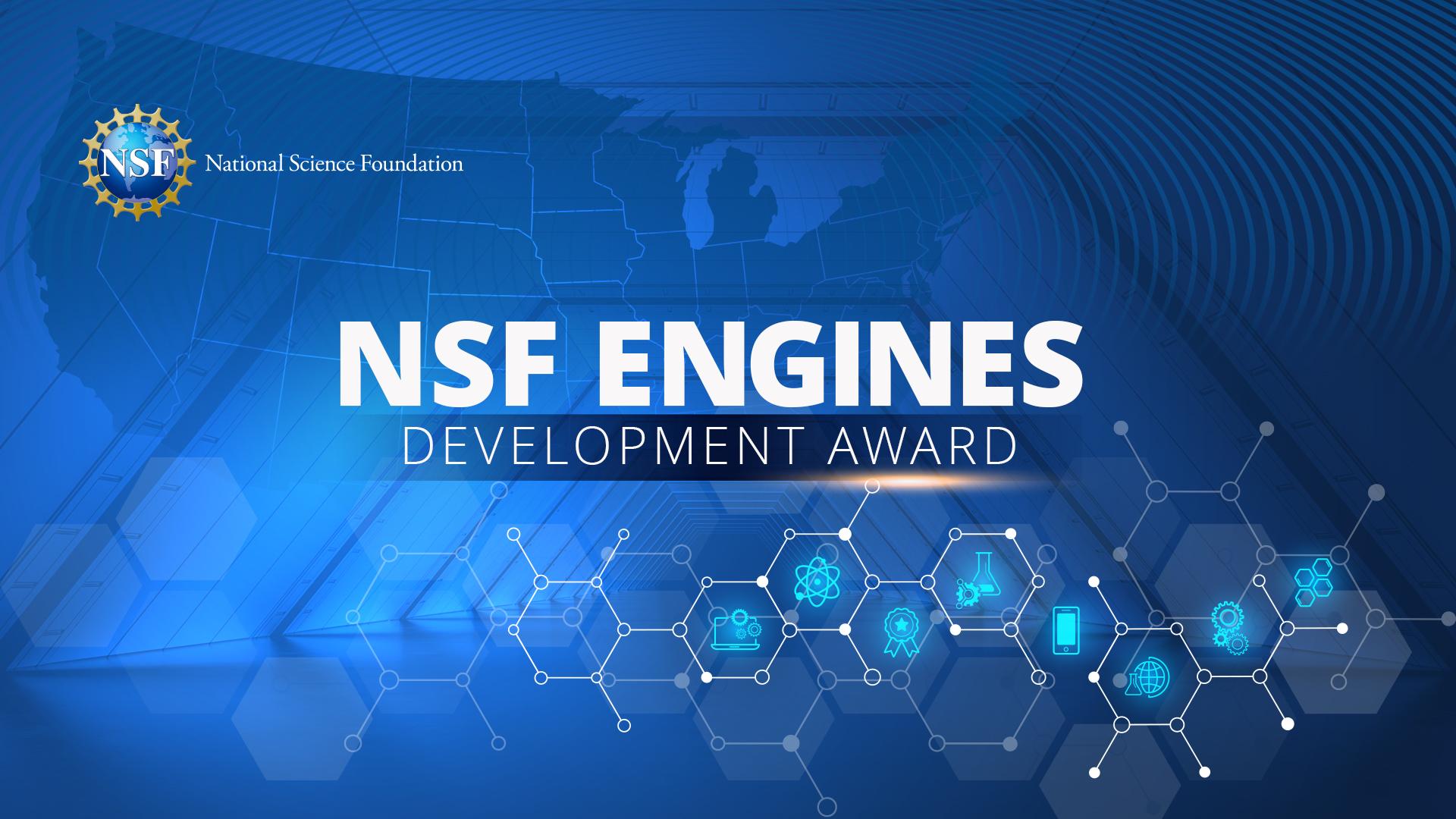
Here are the plans for other winners of “NSF Engines Development Awards”
Two University of North Carolina System campuses, University of Louisville, and Mississippi State University also are leading teams.
Forty-four recipients of the National Science Foundation’s “Regional Innovation Engines Development Awards” were announced last week. In addition to the University of Tennessee, Knoxville (UTK) which was one of the 44 lead institutions (see teknovation.biz article here), a number of other universities led initiatives. We provide a roundup on some of the other awardees here.
From Charlotte and Wilmington, NC:
Campuses of The University of North Carolina System (UNC) are leading two of
- UNC Charlotte is responsible for one named “Clean Carolinas.” It is intended to produce an ecosystem of technology acceleration, research and development, and workforce development while targeting diversity, equity, inclusion, and accessibility to community priorities for energy economic development and well-paying jobs. “Clean Carolinas” is designed to make advancements in clean energy, including offshore wind, solar, clean hydrogen, marine energy, and the electric-energy delivery and storage systems that support their integration with a grid to meet the challenges of achieving a net-carbon-neutral electric grid by 2050 and sustaining it for much longer. In addition, the initiative’s activities will form the groundwork for innovation leadership in the Carolinas and beyond by leveraging the expertise of UNCC and many other partners including the North Carolina Department of Commerce, South Carolina Research Authority, Clemson University, East Carolina University, North Carolina State University, North Carolina A&T State University, Fayetteville State University, Elizabeth City State University, and the E4 Carolinas Consortium. All are described as proven leaders in R&D as well as bringing the results of that R&D to the marketplace to address societal needs.
- UNC Wilmington will lead the North Carolina Ecosystem Technology (NCET) project and will tap the expertise of faculty at seven other North Carolina institutions, along with leaders from nearly 40 local governments and businesses. NCET’s focus is to create new science- and technology-based economic opportunities for coastal communities in three core areas: sustainable aquaculture; climate-resilient infrastructure; and renewable energy ancillary services. Partners include Duke University, East Carolina University, North Carolina A&T State University, RTI International, Cape Fear Community College, and Carteret Community College.
From Lexington, KY:
The University of Kentucky (UK) is the lead organization for the “Generate Advanced Manufacturing Excellence for Change” (GAME Change) initiative. The goal is to secure economic competitiveness throughout the Southeastern Commerce Corridor (SCC) of Kentucky and Tennessee, with a focus on next-generation and advanced manufacturing, supply chain and logistics, and more durable and sustainable materials. In addition to UK, the GAME Change coalition includes research, education, economic development, industrial and manufacturing leaders of the SCC, spanning the I-65 and I-75 thoroughfares and the promising high-growth centers of Louisville, Lexington, Nashville, Knoxville, and Chattanooga that outline an Appalachian region in need of greater connectivity and economic resiliency. UTK and UT at Chattanooga are partners in the UK-led initiative.
From Huntsville, AL:
The HudsonAlpha Institute for Biotechnology was awarded funding for a project titled “Advancing carbon-neutral crop technologies to develop sustainable consumer goods” or “Greening the Southeast” for short. The goal of the four-state (Alabama, Georgia, North Carolina, and Tennessee) initiative is to develop a green, circular bioeconomy for building materials and consumer goods in the Southeast that reduces climate change impacts from manufacturing by eliminating industry reliance on petroleum and environmentally costly fibers. UTK, Tennessee State University, and Vonore-headquartered Genera Energy Inc. are Volunteer State partners.
From Athens, GA:
The University of Georgia (UGA) is leading “Next Generation Agriculture“ (NextGA) which will leverage the strengths of more than 30 public and private organizations to work with farmers in a 20-county region of South Georgia to build an infrastructure for integrative agricultural innovation “in place.” UGA, including UGA Extension, and Fort Valley State University – Georgia’s two land-grant institutions – are NextGA’s academic leads. Two not-for-profit organizations – VentureWell and the Center on Rural Innovation – are also part of the leadership team.
From Tuscaloosa, AL:
The University of Alabama at Tuscaloosa is the lead for a project named the “Mississippi Alabama Georgia Network for Electric Vehicle (EV) Technologies” (MAGNET Engine). It is a collaboration with the University of Georgia and Mississippi State University to envision and develop an innovative supply chain ecosystem where stakeholders from across the EV supply chain can confidently and effectively participate in activities that advance transportation electrification – purchasing electric vehicles, increasing grid capacity, increasing charging capability and establishing and growing domestic industry around materials extraction, recycling, and supply chain component and system manufacturing.
From Starkville, MS:
The Mississippi State University Advanced Research and Development Corporation is the lead for the “Advancing autonomous technologies for advanced manufacturing in Mississippi.” Dubbed “SmartTech MS,” the goal of the project is to advance the regional manufacturing ecosystem by developing and integrating smart, autonomous technologies, positioning Mississippi to capitalize on technological advances in manufacturing and enhancing U.S. industrial competitiveness. The initiative brings together like-minded partners from industry, academia, economic development, state, and local communities to improve productivity, develop new technologies, upskill the workforce, fuel start-ups, attract new industries and help existing industries grow. Core partners include Accelerate MS, Mississippi Department of Employment Security, Aurora Flight Sciences, Aria Group, Taylor Machine Works, Milwaukee Tools, Steel Dynamics, and Camgian Corporation.
Like what you've read?
Forward to a friend!

